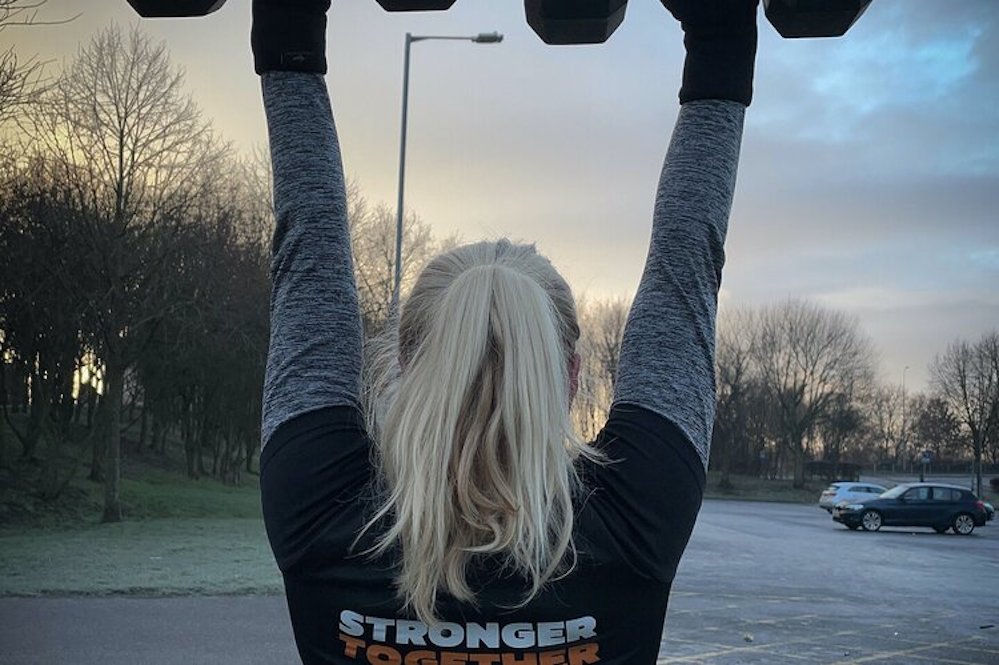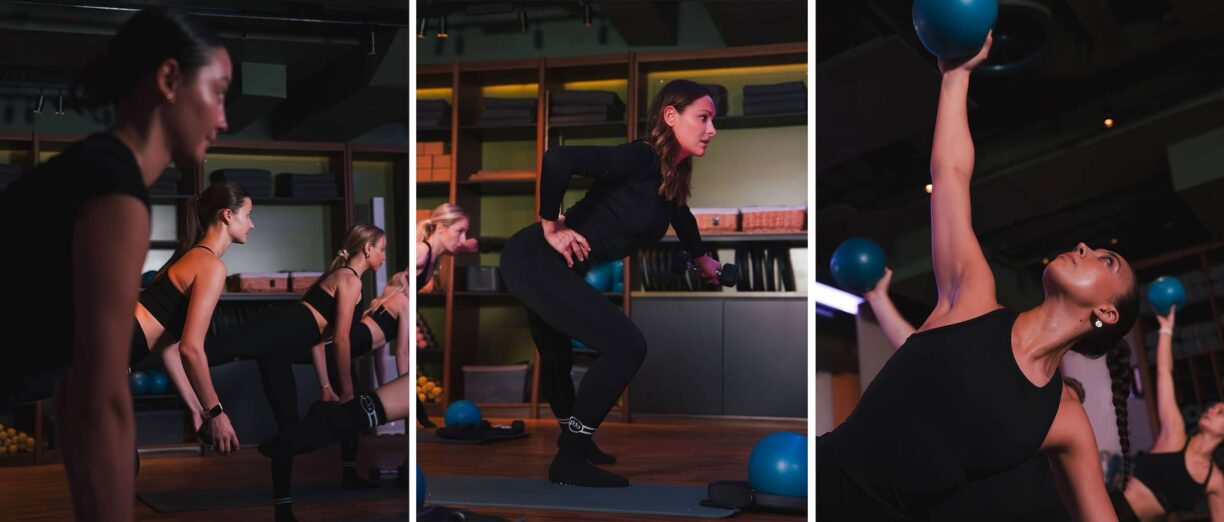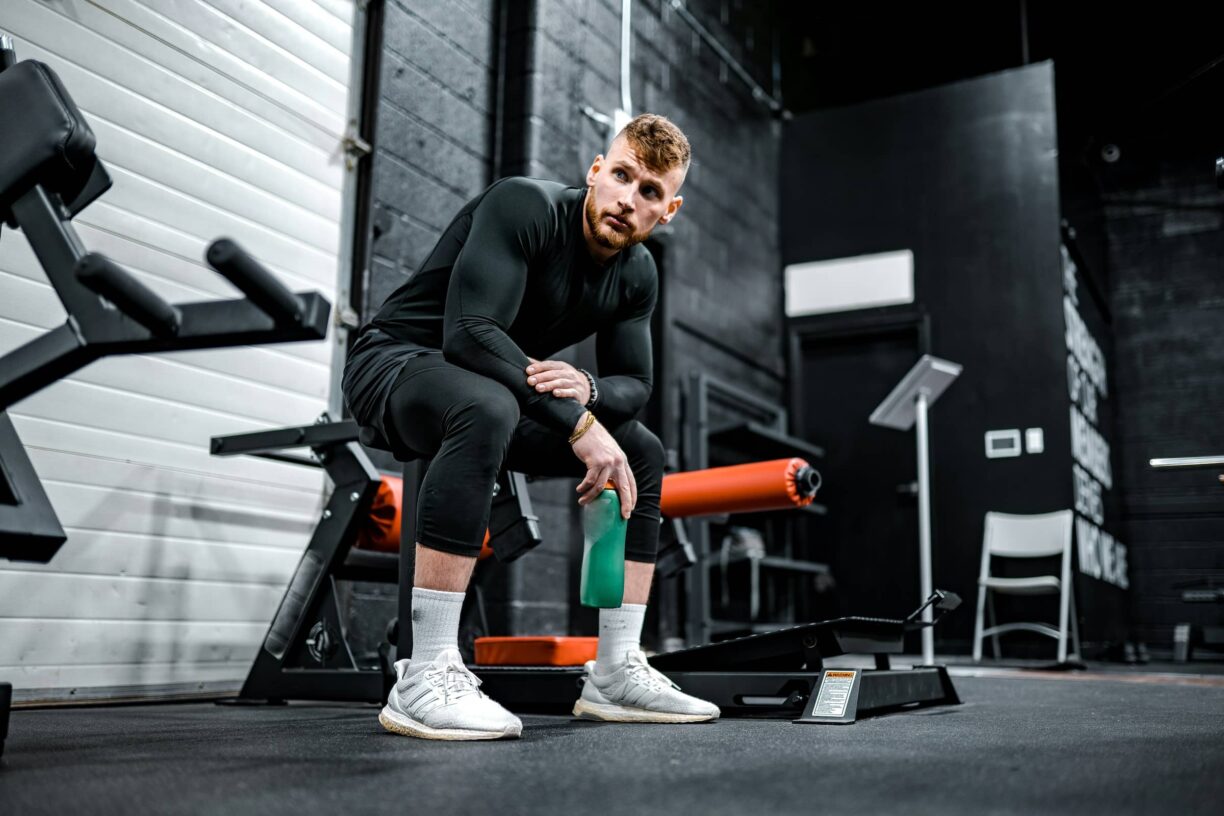When you start strength training, it can be daunting. In particular, if you’ve never done any strength workouts before, it may feel like you are out of your depth.
However, once you get started and understand the benefits to your body, you will never look back.
Strength workouts and resistance training doesn’t have to be complicated. In fact, a simple approach can deliver great results.
I got to speak with Garry Kerr co-founder and director of Battle Bootcamp who gave us the definitive guide to strength training for beginners.
What is strength training?
So, to get started, let us look at what strength training is.
Strength or resistance training involves a series of physical exercises. These are designed to improve strength and endurance. This can involve weight training or bodyweight exercises.
Essentially, building strength involves overloading your muscles so that they grow back stronger.
This is achieved by progressively increasing resistance used in a strength training workout. You can do this by targeting a specific muscle group. You can also do this by focusing on the major muscle groups.
When you build strength, it is primarily anaerobic exercise. However, it can be adapted to provide aerobic exercise benefits through circuit training.
Benefits of Strength Training
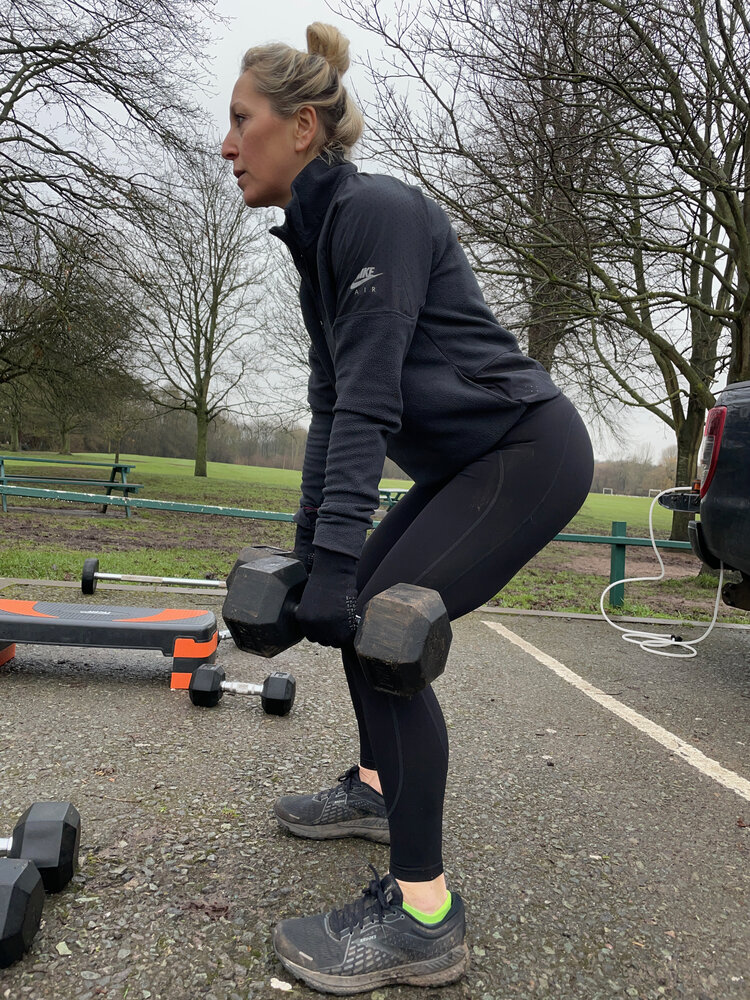
There are many benefits to building strength when performed correctly. These include the following:
- You can build muscle mass
- Increase weight loss and fat loss
- Increases bone density
- Better joint mobility and function
- Higher metabolism to burn more calories
- Reduces the risk of injury
- Improve your mental health
Improved physical appearance
One of the main reasons people take up strength training is to change their body shape.
This type of training can improve your upper body appearance and reduce the size of your waist if complimented with a healthy diet.
Men can develop substantial muscle growth when following structure training programs. For women, they are more likely to develop a firm and toned body shape.
This is due to the lack of testosterone in women required for mass muscle growth.
Better overall health
There are practical health benefits from strength training too. Stronger muscles will improve your posture and provide more support for your joints. It can reduce the risk of injury from sports and general activity.
Older adults who adopt resistance training can prevent the loss of muscle tissue. This happens as we age. Weight training helps prevent osteoporosis and improves bone density.
Strength training may also improve metabolic and cardiovascular health.
Improved mental health
Participating in intense exercise can improve your mood and reduce feelings of depression. This is great for your mental health and can provide great satisfaction.
How do I start Strength Training?
There are many different paths to follow with strength training. Here are a few types:
Bodyweight training
Building strength through bodyweight exercises is perfect for beginners. Mastering basic exercises such as press-ups and squats is a great place to start.
You don’t need any equipment and can do these types of exercises virtually anywhere.
There are hundreds of bodyweight exercises that can be adapted to suit your ability. Bodyweight training can have its limits though. In particular, increasing resistance can be challenging without the use of equipment.
That’s not to say we can’t improve our strength with bodyweight exercises. Look at gymnasts for example, they are extremely strong, very toned and most of their training will be with their bodyweight.
However, you would need to spend hours in the gym each week to achieve that look with this type of training. Therefore, adding resistance into our strength training workouts can accelerate this process.
Barbell training
Now, if you aim is to get strong quickly, the barbell is an awesome tool to get the job done.
Building confidence and getting comfortable with a barbell takes practice, but once mastered you can achieve great results.
Firstly, progressive overload is easy to achieve. Just keep gradually adding more weight to the bar each week.
For exercises such as squats, rows and deadlifts, it’s a pretty straightforward and safe piece of kit to use.
The challenge with this type of training is that you may need to access a gym or set up your own home kit which will mean investing in a barbell, bumper plates, a squat rack and a bench to gain optimal results.
Alternatively, if you work with a reputable Personal Trainer, you should find they’ll have access to a barbell and the related equipment.
Kettlebell training
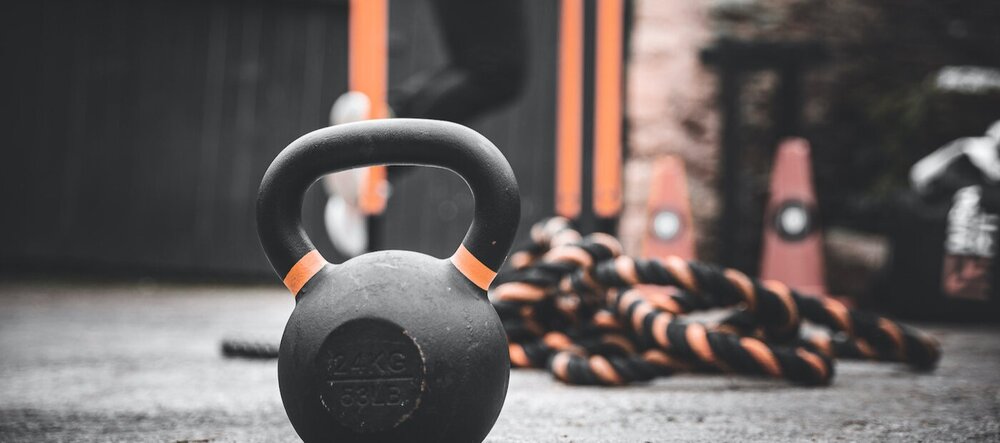
Kettlebells are a very versatile piece of equipment that is excellent for improving your strength.
They come in many different weights, take up minimum space and there are literally hundreds of exercises you can do with a kettlebell.
Ideally, you should start with a light kettlebell of around 8-10kg if you’ve never done weight training before. You can then increase the weight to progressively overload.
Here are 45 kettlebell exercises you can check out to get started.
Dumbbell training
A pair of dumbbells is also a great piece of kit to get started with strength training. Again, they take up minimal space and are extremely versatile.
You can even mix them into some bodyweight exercises to increase the load.
For example, holding a pair of dumbbells whilst lunging will increase the intensity of the exercise.
They are also easier to use than barbells or kettlebells so make a good start for beginners.
On top of that, if you are new to weight training then you will likely have stabilisation or muscle imbalance issues.
Dumbbells are great for improving in these areas which will help you progress quicker.
Dumbbells come in a range of weights and can be purchased in pairs and sets. This makes it practical to progress through different weights and select the best weight for different exercises.
Resistance bands
Finally, resistance bands can be the perfect weight training tool for beginners and also complement other pieces of equipment very well.
They can simulate some of the movements you would do on weight machines with cables.
There are various types of resistance bands that can be used to achieve different goals. For strength training, large looped bands are a great place to start.
They come in various sizes which provides different resistance levels. Purchasing a set of bands of different sizes offers the ability to progressively overload using this piece of equipment.
Resistance bands can work pretty much every muscle group and offer a full-body strength-building programme.
These can be incorporated into weight training sessions to perform deadlifts, squats, bench presses and many more compound exercises.
They are also very cheap and easy to store.
Strength Training programmes
If you’re new to strength training, you’re probably wondering, where do I start?
When starting out on any fitness or health-related programme, our advice is to do something that actually motivates you.
So, if working with Kettlebells intrigues you, or you’d really like to learn how to workout with a barbell, then choose the one that really interests you.
You will find this far more motivation to adhere to and learn new skills along the way. This will give you a sense of achievement as your technique improves and you build up your strength.
That said, bodyweight training is also a perfect place to start. Particularly if you are a complete beginner to strength training.
This will help you get the absolute basic form and technique correct so that we have a solid foundation to build upon.
Once mastered though, you will quickly need to add weight training into the mix to achieve that progressive overload and make progress.
So, let’s look at what you can do to actually get started.
Beginning with a full-body programme is a good place to start. Ideally, start working out 2-3 times a week and begin with 4-5 big compound movements.
Compound exercises work for multiple muscle groups at the same time. One of the best examples of this would be a squat which works your quadriceps, core and gluteus.
You will get a much better bang for your buck with compound exercises. They are efficient exercises, that will build up your strength and burn more calories in a shorter period of time.
Once you start to progress, you can also combine two compound exercises into one move to increase the intensity.
For example, a Thruster, which is a squat performed whilst pressing the weight overhead. This will recruit multiple muscle groups and make for a highly effective strength training session.
So, once you’ve selected your exercises, how many sets and repetitions (reps) should I do?
This is a great question. Firstly, let’s look at what different rep ranges achieve:
- 1-5 reps will build maximal strength and dense muscle tissue. Note you should be absolutely maxed out and not able to complete any more reps within this rep range
- 6-12 reps will build muscle and strength and is particularly popular for those looking to increase muscle mass through hypertrophy
- 12+ reps will build up your muscular endurance, tone muscle and also improve your cardiovascular system
Traditional strength programmes will encourage you to work within the 1-5 rep range. At Battle Bootcamp, particularly for beginners, we would encourage you work within the 6-12 rep range.
As you discover these new exercises and learn the movement patterns, choosing a lighter weight and opting for more reps will let you work on your form safely.
So, ideally aim to complete 5 sets of 6-12 reps and choose 4-5 exercises to work through. An example beginner bodyweight strength workout could be:
- 5 sets of 8-10 squats
- 5 sets of 8-10 lunges
- 5 sets of 10-12 press ups
- 5 sets of 30 secs plank
- Aim to rest for 45 seconds to 60 seconds between sets
Finally, if you are unsure about how to go about starting your strength training plan, speak to a professional.
Battle Bootcamp deliver strength training in both groups training through their Battle Strong workout.
Many of their local instructors are also highly experienced Personal Trainers so can work with you if you need more specific training to achieve your goals or just don’t know where to start.

